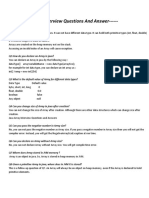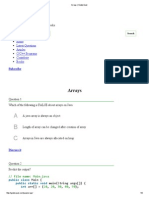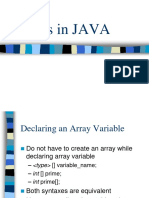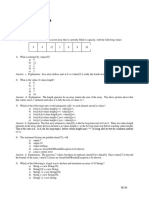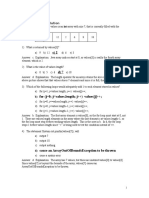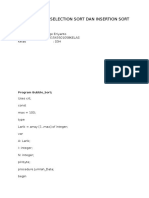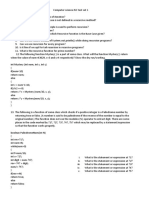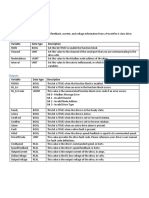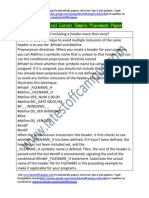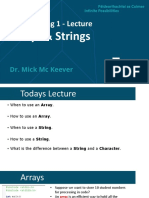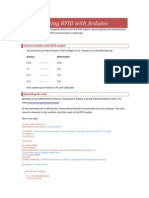0% found this document useful (0 votes)
11 views12 pagesArray One Mark
The document contains a series of multiple-choice questions focused on arrays in Java, covering topics such as array initialization, default values, methods for copying and comparing arrays, and output of specific code snippets. It also addresses concepts like array length, immutability, and time complexity associated with array operations. The questions are designed to test knowledge of Java array functionalities and behaviors.
Uploaded by
prabhujavadeveloperCopyright
© © All Rights Reserved
We take content rights seriously. If you suspect this is your content, claim it here.
Available Formats
Download as PDF, TXT or read online on Scribd
0% found this document useful (0 votes)
11 views12 pagesArray One Mark
The document contains a series of multiple-choice questions focused on arrays in Java, covering topics such as array initialization, default values, methods for copying and comparing arrays, and output of specific code snippets. It also addresses concepts like array length, immutability, and time complexity associated with array operations. The questions are designed to test knowledge of Java array functionalities and behaviors.
Uploaded by
prabhujavadeveloperCopyright
© © All Rights Reserved
We take content rights seriously. If you suspect this is your content, claim it here.
Available Formats
Download as PDF, TXT or read online on Scribd
/ 12








